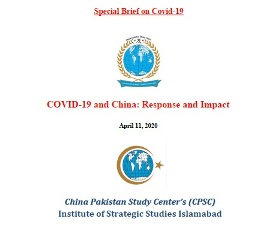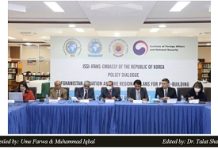Introduction
Coronavirus disease (COVID-19) has spread across the world at alarming speed, which is affecting the global economy, hitting manufacturing and service sectors with huge impacts on labor force. First country to detect emergence of the novel virus was China. Beijing alerted World Health Organization (WHO) of an unknown cause of pneumonia on December 31, 2019. At that time, policy-makers considered it a local phenomenon but as the situation evolved, decision-makers in Beijing had the toughest task of all governments. They were responding to an unknown serious and evolving situation. Initially, it was declared an epidemic, as the spread of disease was mostly in China. Beijing responded to COVID-19 as an epidemic, but when it spread across the globe, it was declared as a pandemic on March 11 by WHO. From being epicenter of COVID-19, now China represents only a quarter of confirmed cases worldwide.
As of now, international community can learn from China’s experience, tailor approaches and develop strategies while responding to evolving situations in different countries. This brief takes stock of the strategy followed by China to combat COVID-19, and also impact of COVID-19 on Chinese economy and engagement with international community.
















